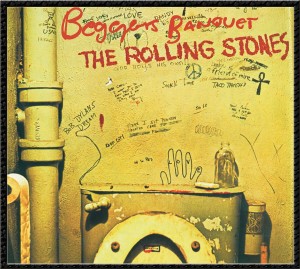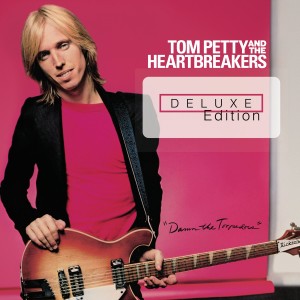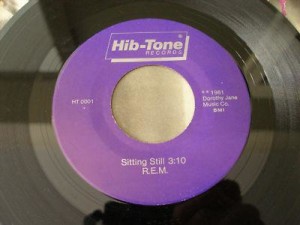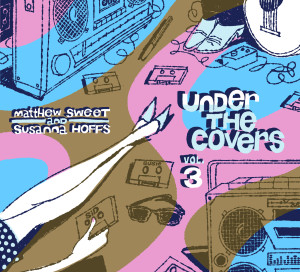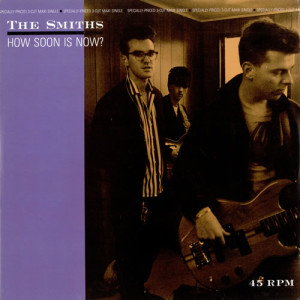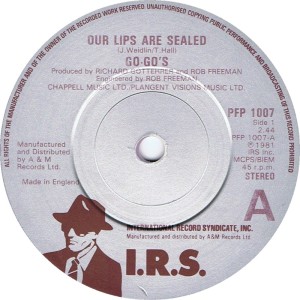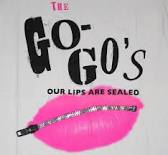“I don’t want to stop anyone from getting the CD, but vinyl is the truest way to hear this record,” says Benmont Tench about his new solo album, You Should Be So Lucky (Blue Note). “When you have Glyn Johns [The Rolling Stones, Eagles, The Who] recording something to tape, you really want to hear it on vinyl.” It’s hard to argue with the longtime Tom Petty & The Heartbreakers keyboardist, stepping out to be a frontman for the first time in his five-decades-long career. And spinning Lucky on 180-gram vinyl very much tells the tale of the details: the delicate brush drumwork and resonating bass on “Ecor Rouge,” the placement of the string quartet behind Tench’s organ lines on “Hannah,” and Tench’s deft touch on the ivories while a guitar solo caterwauls in the left channel on ... Read More »]]>
“I don’t want to stop anyone from getting the CD, but vinyl is the truest way to hear this record,” says Benmont Tench about his new solo album, You Should Be So Lucky (Blue Note). “When you have Glyn Johns [The Rolling Stones, Eagles, The Who] recording something to tape, you really want to hear it on vinyl.” It’s hard to argue with the longtime Tom Petty & The Heartbreakers keyboardist, stepping out to be a frontman for the first time in his five-decades-long career. And spinning Lucky on 180-gram vinyl very much tells the tale of the details: the delicate brush drumwork and resonating bass on “Ecor Rouge,” the placement of the string quartet behind Tench’s organ lines on “Hannah,” and Tench’s deft touch on the ivories while a guitar solo caterwauls in the left channel on the Professor Longhair N’awlins-style tribute “Wobbles.” Here, we wax on about the value of what you get in the grooves, his turntable and his favorite albums, and how to reach “The Grail.”
Mike Mettler: What was your sonic goal for the vinyl version of You Should Be So Lucky?
Benmont Tench: I wanted it to sound like the tape. I mean, it’s Glyn Johns producing! So we recorded to tape, no Pro Tools. The first hint of digital media was when it was mastered to CD. I just want people to hear it as close to the tape as possible. Chris Bellman did the vinyl mastering, and it sounds fantastic. It was important for me that we got the details across to those who would appreciate it. For example, at the beginning of the very first track, “Today I Took Your Picture Down,” there’s some air in the way the sticks drop onto the snare that’s just lovely.
Mettler: To me, that song has a modern, Southern Accents kind of feel to it.
Tench: Oh, nice. We didn’t think about it; we just started playing. I don’t know what Glyn said to the other musicians, but he encouraged me to play the song and not tell other people what to play — which was fine by me, because they’re all my friends. I love playing with them, and I learn something new every time. And it’s a live track. The vocal is live, and nobody punched anything in.
Mettler: And you recorded the band live off the floor, too. Me, I happen to like hearing bleedthrough. When something reverberates off of a snare drum because you’re right there in the room with it, that’s as real as it gets.
Tench: Exactly! You get the blending of the soundwaves of the two guitars mixing in with each other. And sometimes you get the vocal sound and piano sound on one mike, like we did on “Duquesne Whistle” and “Hannah.” Because I sing so quietly, they had to turn the mike up really loud, so we got the piano in the vocal mike. At one point on “Duquesne,” I asked Glyn, “Can I re-sing that one line?” and he said, “No, dear boy, you can’t. It can’t be done. No way.” [both laugh]
Mettler: I’m glad Lucky is spread out over four sides — and it has two bonus tracks, too. The side breaks are important for feeling the mood shifts on this record.
Tench: All I listen to are LPs, so it’s important to me to have the sides. You listen to four or five songs at a time; that’s a good chunk of music. Sides have their own character. And you can have a favorite side of an album, like we do with Exile on Main Street or The White Album.
Mettler: What kind of turntable do you have?
Tench: It’s a Pro-Ject model, one from the RM Series, the 5.1 SE, and I have the Blue Point No. 2 cartridge. It sounds like a million bucks. Steve Ferrone [drummer with the Heartbreakers] gave me some JBL 4408A studio monitor speakers to go with them. I’m old school. I haven’t gone surround yet. I’m sticking with stereo.
Mettler: What are some of your favorite albums to spin?
Tench: I love records that Bob Dylan made, especially the early funny ones. [both laugh] I really love John Wesley Harding. The one thing I know about Bob Dylan is that it’s a fool’s game trying to figure out Bob Dylan. I’ve learned that first hand. You think he’s saying something clever, and you find out he’s just telling the truth. But that’s what appeals to me about making music, you know?
Mettler: I do. The vinyl reissue of John Wesley Harding is so beautifully stark.
Tench: I don’t have the reissue because I have a really good original.
Mettler: You should get it. And get the Mobile Fidelity remaster of Blonde on Blonde too — it’s soooo good.
Tench: Oh good, it’s by Mobile Fidelity. I don’t trust most reissues unless they specifically say they’re from the analog tapes; a lot of them are done from a digital source. I think you get more of the original signal on vinyl than you do on a 16-bit CD anyway. Vinyl is still the better way to listen, even if the album was originally recorded digitally. I’ve never woken up and gotten lost in the music by listening to a CD. I dig the CD format a lot, but it doesn’t lead me down a rabbit hole like vinyl does. There’s something with the vinyl experience that just draws you in where you can taste it.
Mettler: Any particular record that takes you away every time?
Tench: Oh yeah: Beggars Banquet, Black and Blue... I could go on and on. My thought is, if you’re not listening to vinyl, you’re kind of cheating yourself. I know people have different tastes, and some people really like the sound of digital. MP3s are great for convenience when you travel, but that’s just about it. You’re cheated out of a lot of warmth and richness of any recording. MP3s are better than not listening to music at all, but still — you’re being cheated.
Mettler: Hard to disagree with you there. Back to Lucky being on vinyl. Putting it on four sides was good call, since it gives you room for the arrangements to breathe. There’s a lot of good bass content on “Blonde Girl, Blue Dress,” which kicks off Side 2, and especially the tambourine —
Tench: I love the way Tom [Petty] plays bass on that one. And that tambourine player, Ringo [Starr] — I think there’s a future for him. You should hear him behind a kit.
Mettler: That might be a good idea. You might want to suggest that to him.
Tench: If only he wasn’t such an unpleasant character. [both chuckle]
Mettler: It must be tough. No one wants to work with him every summer either… [We're both kidding, folks!]
Tench: Such a drag. Yeah, we put up with him. It took him all of one pass to play that.
Mettler: Someone once said to me, “Listening to Ringo play is like listening to someone’s heartbeat.” It’s so exact and in the pocket.
Tench: That’s what it is. That’s the beauty of it. And that’s what England had for a while. They had Ringo, Charlie [Watts], Mick Fleetwood, Keith Moon.,Topper [Headon] with The Clash… it’s the same thing: the heartbeat is still there. England had all these guys. And to me, Ringo was such a giant.
Mettler: Considering the way Lucky was essentially cut live in the studio, do you subscribe to the “less is more” theory of recording?
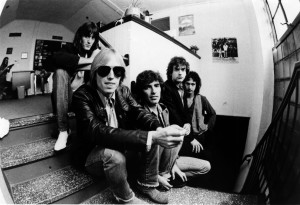
Damn Fine: Tom Petty (in shades) and the Heartbreakers in repose; Tench is second from right. Photo by Joel Bernstein.
Tench: Denny Cordell [the late producer and co-founder of Tom Petty’s first label, Shelter Records] told me a long time ago the reason some records sound so loud is because there’s less on them. And that makes me think of one of my favorite Heartbreakers songs, “Breakdown.” It has three guitars on it, but the essence of the record is Mike [Campbell]’s guitar lick, Tom [Petty]’s vocals, a solitary Wurlitzer, bass, and drums. It’s a very spare drum pattern. But when it comes on the radio, it catches your ear. It’s really got a lot of space. I think that’s the mark of a really good-sounding record.
We just captured a mood on that take. We had cut it earlier, and thought we had it. We had cut it with a grand piano, and it was a little bit different. But Tom called us back to the studio and said, “No.” So I think we maybe came back at 2 in the morning to recut it.
And it just takes that one moment. The good musicians can pretty much call up the moment. If the good bands, the good ensembles — whether they’re a gang of session musicians for [Van Morrison's] Moondance album, or a band like us — can catch what that wave is, you just grab onto it, and that’s The Grail. It’s “Twist and Shout,” “Things We Said Today,” “No Reply” — those songs are The Grail.
Mettler: The Heartbreakers always seem to find a few Grails whenever I see you live.
Tench: Thanks. Live playing is a more direct thing for me, where I don’t have to be cautious. You want to play a song like “Free Fallin’ ” as a pop song. Then you can do a song like “Runnin’ Down a Dream” as a hybrid. Because there isn’t any piano on that record, I can totally barrelhouse it up. When we play “(I’m Not Your) Steppin’ Stone” or “When the Time Comes” from the second record [You’re Gonna Get It!], it’s just basic, stripped down, simple rock and roll. And that’s what I really love about what we do in The Heartbreakers.
]]>“The thing that was so interesting about the ’80s was that it was very diverse,” says Susanna Hoffs — and if anyone should know, it’s the longtime Bangles lead singer/guitarist who saw much Egyp-she-an-fueled success in that decade. “It was a smarter, cooler time, and it’s good to see that it’s more popular than ever,” says Matthew Sweet — and if anyone should know, it’s the multi-instrumentalist/songwriter who’s long mastered the tone of that decade and added a few twists of his own to boot.
And if there’s one thing I, like, totally know for sure is that Sweet and Hoffs got their take on the decade just right with their latest collaboration, Under the Covers, Vol. 3 (Shout! Factory). Vol. 3 was one of my favorite albums of 2013, and it continues to connect with me — from ... Read More »]]>
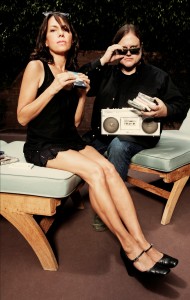
Radio Free, You’re Up: Sid and Susie (a.k.a. Matthew Sweet and Susanna Hoffs) break out the ’80s jams. Photo by Drew Reynolds.
BY MIKE METTLER
“The thing that was so interesting about the ’80s was that it was very diverse,” says Susanna Hoffs — and if anyone should know, it’s the longtime Bangles lead singer/guitarist who saw much Egyp-she-an-fueled success in that decade. “It was a smarter, cooler time, and it’s good to see that it’s more popular than ever,” says Matthew Sweet — and if anyone should know, it’s the multi-instrumentalist/songwriter who’s long mastered the tone of that decade and added a few twists of his own to boot.
And if there’s one thing I, like, totally know for sure is that Sweet and Hoffs got their take on the decade just right with their latest collaboration, Under the Covers, Vol. 3 (Shout! Factory). Vol. 3 was one of my favorite albums of 2013, and it continues to connect with me — from Hoffs’ breathy dreamweaver role on Roxy Music’s “More Than This” to Sweet’s insistent fortitude on The Smiths’ “How Soon Is Now” to the pair’s instinctive and sensual interweaving on Tom Petty’s “Free Fallin’” and Lindsey Buckingham’s “Trouble” — well beyond my initial listening period. To use a few ’80s words: This record is wicked awesome.
Recently, the dynamic duo — a.k.a. Sid and Susie — got on the line together to talk about their Vol. 3 arrangements and vocal choices, and what they might tackle on a potential Vol. 4 ’90s record.
Mike Mettler: Something that sticks out to me after repeated listens to Vol. 3 is how the two of you made such individual and creative choices about the placement of harmonies and vocal layers on all of these songs.
Matthew Sweet: Sue gets a lot of credit for doing innovative background vocal things. She really steps it up this time. Just throwing that out there.
Susanna Hoffs: Thank you, Matthew. I really appreciate that.
Mettler: I can’t argue with that either. Why don’t we start with the first track on Vol. 3, “Sitting Still,” which was the B-side of R.E.M.’s “Radio Free Europe,” the band’s first-ever single on Hib-Tone. Matthew, you and R.E.M. go back a long way.
Sweet: I bought that 45 at some point when I was in high school — probably in 10th or 11th grade. They had just put out Chronic Town, and they came to Lincoln [Nebraska] and played at my local rock club, The Drumstick [on September 21, 1982], where I’d been getting in and playing in bands since I was around 13. So I got to see them play. They were amazed that some kid had their 45, and I had them sign it. By the next time they came back to play The Drumstick [on May 28, 1983], Murmur had come out, I’d gotten probably 100 people to buy R.E.M. records.
Mettler: That’s fantastic. I bought both Chronic Town and Murmur on vinyl as soon as they came out. Those records really weren’t like anything else you were hearing at the time at all. R.E.M. was in its own universe.
Sweet: They’re kind of unique and they influenced so many great, great people. They still don’t quite get the full reverence they should, in my opinion.
Mettler: Yeah, I have to agree. The background vocals you and Sue did on “Sitting Still” are very interesting to me. When you guys are singing together on the choruses, Sue’s voice gets a little bit louder at certain points, and then we get the “I am the sun” counter vocal. How did you decide to do it that way? Because that’s a good bit different than the original.
Hoffs: Most of the record was done by our version of postal service: We Skyped music back and forth to each other. There was a lot of mystery and excitement, like unwrapping a present. Matthew would send me tracks, and I’d be like, “Whoo! Listen to this track! How cool!” And then it would be my job to either sing lead vocal, or, if he had a vocal on there, to, to sing the harmony.
Sweet: And, honestly, we’re often doubled on “Sitting Still.”
Hoffs: I’m sort of shadowing his vocal on that song. And then came time for me to do the backgrounds. I got into this very free-form, improvisational mode where I just started laying stuff down. If I had a thought, I’d just throw it down there. It was a pure joy doing that. That’s the beauty of working at home and being able to layer things up, and then double them, and then layer some more. It’s like painting. It was really fun.
Sweet: And it was really fun for me because I got to open the session [file] that had all those crazy background vocals, and I’m like, “That’s fucking awesome.” There’s not a lot to be unhappy about in the process.
Hoffs: I would always say to Matthew, “Now, don’t be shocked if, when you open this session, you find a crazy amount of tracks.” I would always tell him, “Feel free to delete or get rid of anything you don’t want to use.” But for the most part, Matthew kept what I did.
Mettler: Like you said, it must have been like unwrapping a present. Were there any songs where the lead vocal was changed because of something you sent back and forth, like somebody else started singing lead and then you decided to change it?
Hoffs: Well, we typically would figure that out in advance. There were times during Vols. 1, 2, and 3 when we’d be making our song lists, and we were like kids in a candy store: “Let’s do this! We want this! I want that!” You know, it was a joyfest of picking songs. For example, on Vol. 2, I was sure that Matthew would be the one to sing “Bell Bottom Blues” and “Maggie May.” And then suddenly, he’d go, “Oh, no, you’re going to do those.”
Sweet: Well, I think Sue should sing everything, really. That’s huge fun for me: To have Sue sing everything I think I might like to hear her sing.
Hoffs: Aww, that’s so sweet. Well, for Vol. 3, I had no idea I was going to sing [Lindsey Buckingham's] “Trouble” or [Roxy Music's] “More Than This.” I was like, “Really? Wow! Are you sure?” So I had to listen with a different ear when I was doing those vocals. And then we kept adding songs. Our initial list didn’t have “Free Fallin’” on it, for example. It was more about having fun and being experimental. Like on [The Smiths'] “How Soon Is Now,” when the part comes up about going to a club —
Sweet: Yeah, it’s so great when Sue says all that.
Hoffs: I didn’t know they did that on the record. I think that was a momentary giggle moment for myself. I figured, hey, it’s a Sid and Susie record, so let’s turn it into some kind of bizarre duet/conversation.
Sweet: It’s a little bit like “Trouble,” where everything just follows in the right place, like clockwork.
Mettler: I love Lindsey Buckingham. He’s a unique and, I think, super-underrated songwriter. And “Trouble” is actually my favorite track on Vol. 3.
Sweet: He is great, isn’t he? He reminds me what a smarter, cooler, full-on rock star was in the ’70s, you know?
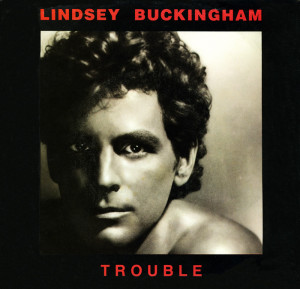 Mettler: Yeah, I do. I’ve probably listened to “Trouble” hundreds of times over the years, but when I heard you at the beginning doing the “two, three, four” count in, I think that was the first time I ever knew what Lindsey was saying there! He plays with varispeed so much on his vocals that I never heard it that clearly before.
Mettler: Yeah, I do. I’ve probably listened to “Trouble” hundreds of times over the years, but when I heard you at the beginning doing the “two, three, four” count in, I think that was the first time I ever knew what Lindsey was saying there! He plays with varispeed so much on his vocals that I never heard it that clearly before.
Sweet: There was a point where I thought it’ll be weird to be imitating his kind of yodeling thing there, so what could I do instead? I never even knew that was what he was saying until I sort of realized, “Oh, he’s counting — ‘Twooooo, threeeeeee, foooooour’ ”… just like that.
Hoffs: I never knew that until just now! Earlier I learned you played violin in fifth grade, and now I’ve learned that Lindsey Buckingham is saying “two, three, four.”
Mettler: We’re all getting some good lessons today. And I’m with Sue. I never knew that until I heard Matthew do it. My reaction was, “Oh, my God! I’ve heard this song for 30 years and I never figured it out!” I never thought of it.
Sweet: You know, that song almost made it out the door without any counting, and it just starting. I sort of felt guilty, like, “Oh, I should try and put something like that thing on there.” And when I did it, I just thought, “It’s ok if it sounds more like it — you can tell what it is.”
Hoffs: Definitely. And I think it’s especially cool now that that’s the story behind it — that we never knew what he was saying, and you figured it out.
Sweet: Yeah. I didn’t realize until we were literally doing it. I just thought, I know he’d done something at the beginning. I just love all the varispeed stuff he does. It’s great.
Mettler: He did that a lot in the ’80s, both with solo material and Fleetwood Mac. That’s him doing the “ooh, ahh” vocals on [Fleetwood Mac's] “Big Love,” and a lot people didn’t even know it was him. You just thought it was somebody else. But he was the one answering himself on that song — which I didn’t know until I talked to him about it [in 1992].
Sweet: That’s where he was sped up?
Mettler: Yeah, he just changed it up. It was also partially because Stevie [Nicks] wasn’t really in the studio a whole lot when they were making that record [1987’s Tango in the Night]. He wound up borrowing a solo track he was working on for “Big Love.”
Sweet: That recording — man, it was awesome.
Mettler: It’s something else. And like I said, “Trouble” is my favorite track on Vol. 3. I’ve probably played it at least 20 times so far.
Hoffs: Ah, thank you.
Sweet: I really like the work on that one because I like the sound of Susie’s voice.
Mettler: Me too. Ok, so who made the call to do the Go-Go’s’ “Our Lips Are Sealed”? I thought that was pretty ballsy.
Hoffs: I’m pretty sure Matthew did. We had talked about doing the Go-Go’s.
Sweet: We used to talk about doing The Bangles.
Hoffs: We said that if we do it, Matthew’s going to sing it. That was going to be the spin.
Sweet: The thought was maybe it’s better that we sing something by the “other” girl group, one we also both know and love as people. Sue, you were nervous about doing it.
Hoffs: Yeah, I was really nervous, because when you know somebody and you’re singing their song — I mean, I know all the girls in that band. So I wanted to get it right, or at least do my best to do their incredible record justice. It was fun and challenging. And, you know, there’s something about taking on a Chrissie Hynde song or us doing “How Soon Is Now” — it’s like, these are records that we loved and are, to us, classic records. So there’s a little bit of trying to overcome that oh-my-God feeling, you know. You just have to stop your mind from thinking and follow the joy.
Mettler: On “Our Lips Are Sealed,” I though your vocal was a little more vulnerable and mature, with an extra raspiness and throatiness to it. Was it always in your mind to sing that song differently?
Hoffs: Well, you know, the original record was doubled; it was a very classic, pop-sounding record. Matthew and I talked about that. But I thought, “You know what? There’s a different quality that’s going on naturally here.” I thought I could double it and do the pop thing. There’s a certain charm and beauty of their version. In the end, we chose to go with the more open, exposed, raspy quality of my vocal.
Sweet: I love having her voice get that ripped up. I wish my voice would do that, and sort of sound like The Beatles or something when their voices rip up.
Hoffs: Aw, thanks, Matthew. And Matthew is an incredible falsetto singer. I mean, he’s an incredible singer all the way around, but his voice still has —
Sweet: Well, I couldn’t hit that high Jane Wiedlin part there. I had to sing it low, which probably was good for it.
Hoffs: I think I shadowed a really high part. We did a whole bunch of shadowing each other, doubling each other in different ways. Our voices blend so much that you sometimes don’t even know who’s doing what.
Mettler: I wrote that in my notes: “Ok, who is this?” I ‘d listen three or four times, and I’d keep changing my mind. “This sounds like it’s her. Ok, no; it’s both of them. They’re one now.”
Hoffs: There are things that I can’t tell. I think it could be. Yeah, I don’t know who it is.
Sweet: You’re hearing us doubled a lot of the time.
Mettler: It’s smartly produced, and it makes you want to listen to the song more than once because you just get different things out of it each time.
Sweet: Great. I mean, these albums are definitely meant to be like, “Turn it up loud in your car and let it crank.”
Hoffs: That’s what we hope people will do.
Mettler: Is it too early to talk about doing the ’90s record yet? Vol. 4?
Hoffs: No, it’s never too early. You go ahead, Matthew.
Sweet: I think we can try to do ’90s stuff. I wouldn’t have said that 3 or 5 years ago, though. I think that there’s probably lots of things that would be great. But we would do it, obviously. Right?
Hoffs: Yeah. I mean, I would love to keep going.
Mettler: Great. I think you should. I mean, I can hear Susie singing [Soundgarden's] “Black Hole Sun.”
Hoffs: Oh, that’s a cool melody.
Sweet: That’s pretty inspired.
Hoffs: That’s really inspired.
Sweet: She could certainly sing some Nirvana, too.
Mettler: What song of theirs would you do?
Hoffs: I like “About a Girl.” I love that song, the version they do on Unplugged [in New York]. That’s exactly what I’m talking about. It could be a lot of fun. We could pull a lot of crazy stuff out if we wanted to.
]]>

